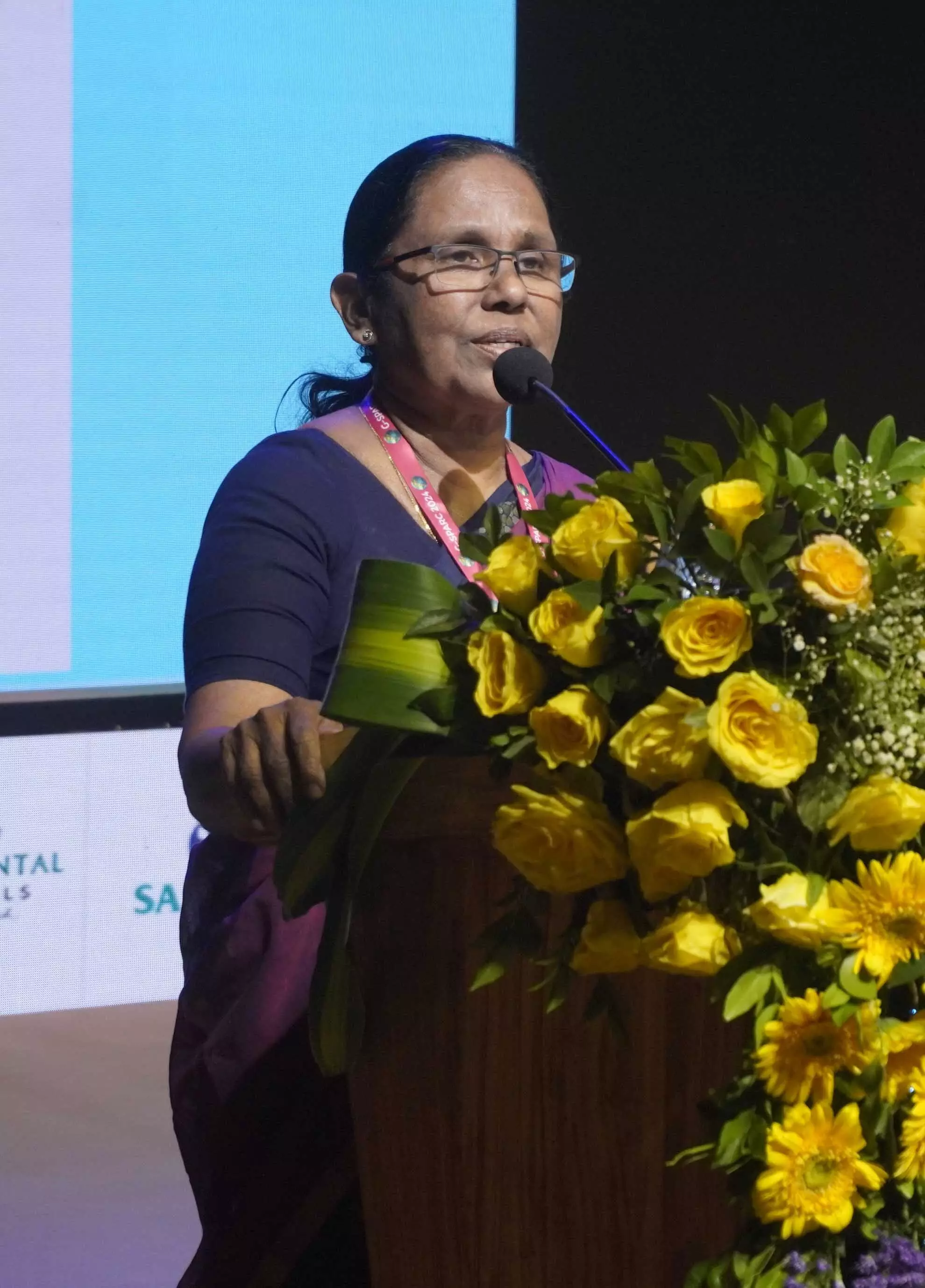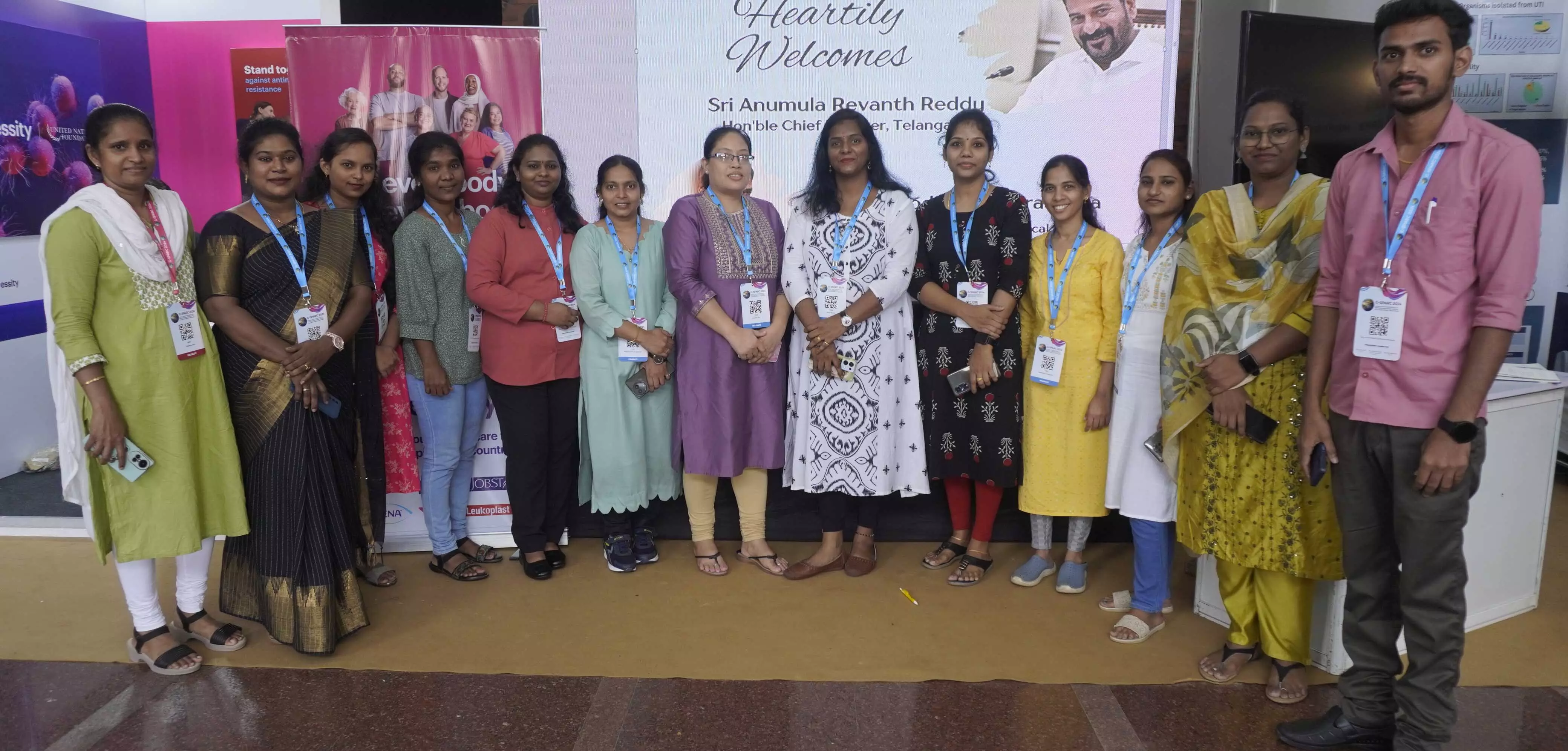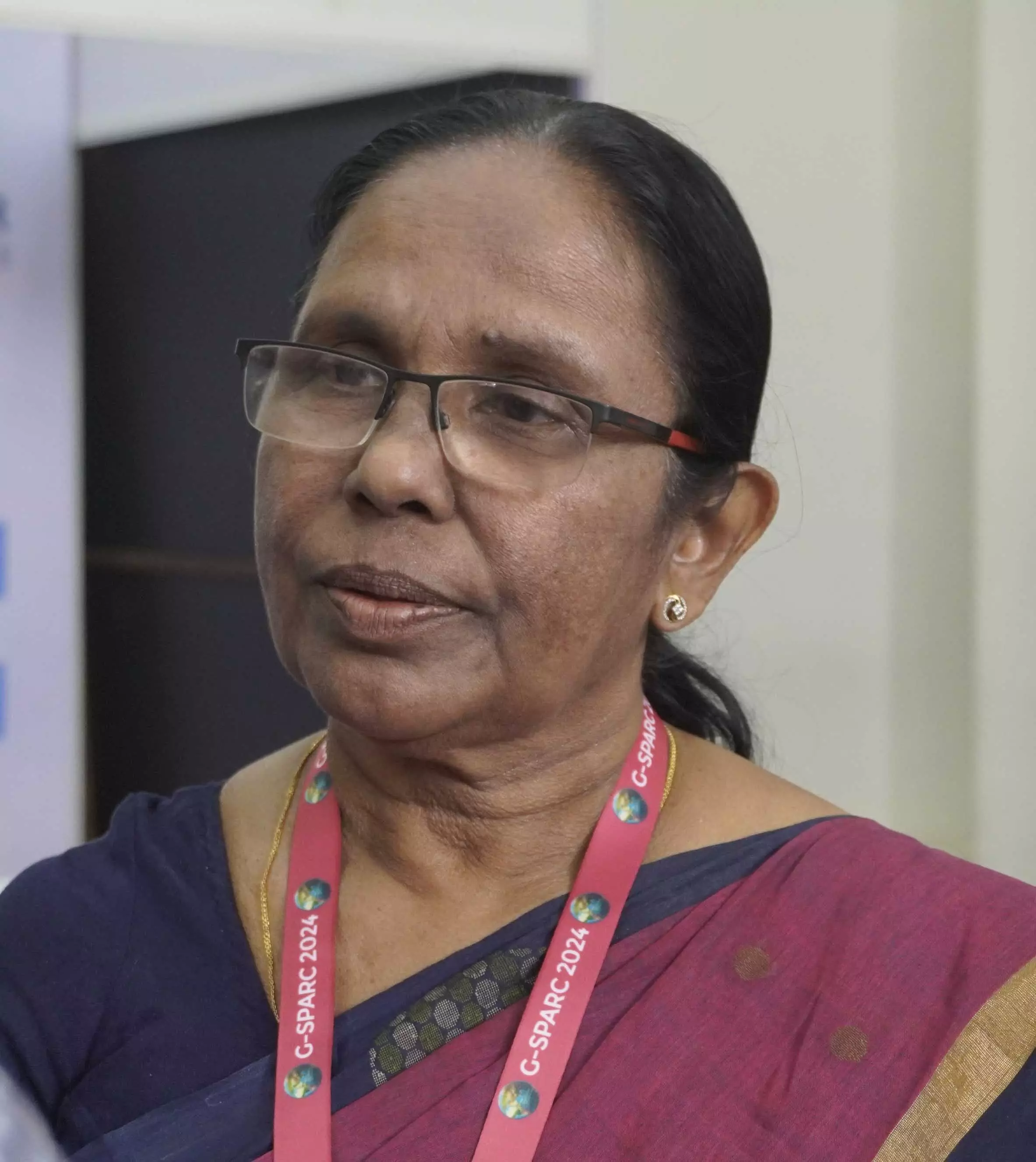WHO reckons AMR a global health security Threat: Shailaja Teacher, Kerala MLA
The estimated global cost of fighting AMR will be $1000 trillion by 2050
Gsparc gets going in Hyderabad
Hyderabad: The three-day G-Sparc 2024, Global South Conference on Infection Prevention, Control, and Antimicrobial Stewardship began here on Thursday.
Speaking on the ‘Management of outbreaks and health crises- a politician's perspective,’ Shailaja Teacher, former health minister of Kerala said Infection Prevention and Control, AMR (Anti Microbial Resistance) are global issues. AMR is a silent pandemic, she said. AMR is recognised as a global health security threat by WHO (World Health Organisation), CDC (Centre for Disease Control), and UN (United Nations). UN addressed AMR as early as 2016. She gave insights into the preparedness before Covid spread and how proactive measures about AMR, its ‘policy were taken in Kerala, etc and the introduction of the AMR action plan, the first time India proved to be very effective.
She said we need one health approach to address AMR. The estimated global cost of fighting AMR is $1000 trillion by 2050.
Kerala became the first State in India to release a sub-national action plan called KARSAP in 2018 and it is conceptualised and implemented on a One Health Platform. We launched the Antibiotic Literate Kerala Campaign in 2019 to make all citizens of Kerala aware of the judicious use of antibiotics in all sectors. We have also launched an AI-based Antibiogram App, she said.
Participating in a panel discussion on the leadership role in IPC & AMS policy and practices, Dr Evita Fernandez- Chair of the Fernandez Foundation said nurses are true custodians of the patients. However, they are scared to raise issues when the patient’s health is compromised. When anyone including doctors touches the patient, they need to be sanitised well.
Nurses must get their respect. They are not subordinates to doctors. They are our colleagues. Nurses play a big role in stopping infections spread to patients. Doctors must change their attitudes towards nurses and give mutual respect, she added.
Dr Anuj Sharma of the WHO Country Office of India said for an effective AMR plan and its implementation we need a state government’s concurrence on IPC (Infection, Prevention, and Control) and AMR
The panel discussion was moderated by Dr.Hari Prasad-Chaiman - CARE Group of hospitals
The panelists were Dr Evita Fernandez- Chair, Fernandez Foundation Dr.Gurunath Reddy-Chairman - Continental Hospital; Dr Vincy Tribhuvan -VP- Of nursing, CARE Group; Dr. Giridhar Gyani -DG- AHPI; Dr. Kashipa Harit- Deputy Director NABH; Dr. Anuj Sharma-Team Focal Point - AMR | IPC, World Health Organisation, Country O ce for India
Earlier the meeting began with a session on Understanding the science of complexity and its applications in IPC by Prof Dr Vijay V Yeldandi, Clinical Professor of Medicine and Surgery, University of Illinois, Chicago, USA.
Another session by Dr Annie Thakore, CEO, of Pranaam Hospital Enhancing Infection Control Practices in Hospital Settings followed it.
A panel discussion on the Role of Environmental surveillance in mitigating infectious diseases and antimicrobial resistance was held. The Panelists were Dr. Rakesh Mishra, Director, Tata Institute of Genetics and Society (TIGS), Bengaluru and Principal Investigator, Alliance for Pathogen Surveillance Innovations (APSI)-India; Dr Vinay K Nandicoori, Director, CSIR-Centre for Cellular and Molecular Biology (CCMB), Hyderabad and Principal Investigator, APSI-India; Dr. Aruna Panda, Program Director, APSI-India, CCMB, Hyderabad; D. Shivranjani C Moharir, Senior Scientist, TIGS; Dr Mahesh Dharne, Senior Principal Scientist, CSIR-National Chemical Laboratory, Pune
Some of the prominent speakers who participated in the conference include Dr Anuj Sharma, WHO India Office; Prof Chedly Azzouz, Chairperson, Infection Control Africa Network; Prof. (Dr.) Atul Goel, DGHS & Director, National Centre for Disease Control (NCDC); Shailaja Teacher, MLA and Former-Health Minister, Govt of Kerala
The objective of the conference is to provide a platform for Infection Prevention and Control (IPC), Antimicrobial Resistance (AMR), and Patient Safety stakeholders from Global South (resource-limited countries in Asia, Africa, Middle East, South America) to collaborate for better policies, research, tailored solutions and practices on IPC, AMS and WASH (Water, Sanitation, and Hygiene) and pandemic preparedness.
The conference is organised by the Infection Control Academy of India (IFCAI), University of Hyderabad (UoH), and Pragyaan Sustainable Health Outcomes Foundation (PRASHO) with support from more than a hundred distinguished partners from academia, industry, healthcare organisations, and professional associations.




